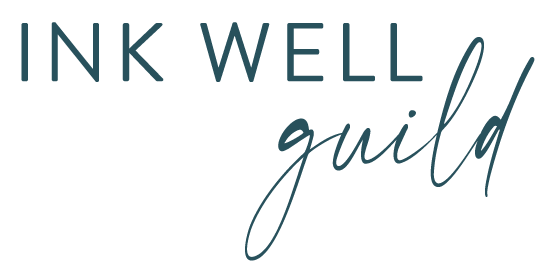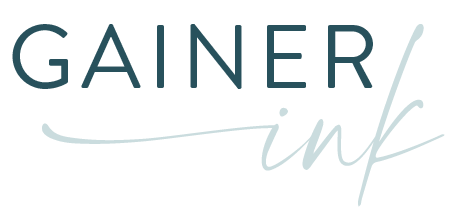What else there is beyond blogging for freelance writers? The good news is…there’s a whole lot.
Why I Begin My Freelance Writers With Blog Posts
I teach my writers how to get started with freelancing by focusing on blog posts. It’s a fairly natural starting point. We’re all familiar with blog posts, we’ve read them, we know the format.
They’re a low risk for our clients and for us. You’re not going to dump 20 hours into a blog post and then have it not work out. The barrier to entry is really low. It’s a great way to get your foot in the door.
That’s what I teach. There are people with other writing courses who would say that I’m wrong.
Well, it’s all about what your focus is. You’re not going to get rich off of writing blog posts. True, but you’re also not going to get rich off of copywriting if you never get started. And I think blog posts are a great way to get started, period!
So what is there beyond writing blog posts? It’s actually a great question from writers because it means that they’re finding clients, and their client says, “Oh hey, I see that you write blog posts. Is there anything else you can do?”
And the answer to that, as much as you, the freelance writer, can make it, is “yes!”
But Can They Write Anything Else?
Yes, a lot more.
Writing blog posts is a great way to find work. One gig turns into multiple gigs. People really, really like versatile writers.
There’s something about specializing and niching down, but I think that’s best saved until you really know what you’re doing. It could be you go into it knowing, yes, this is my thing. I want to write course curriculum, or case studies. You know from day one that’s what you want to do. But a lot of us, we don’t know what we want to do. (Another reason why I think blog posts are a great point of entry…)
Once someone finds somebody who can do a good job with a blog post, then they are more inclined to trust them with things that are more substantial. You’re more likely to get emails, web copy, sales pages, course lessons, opt-ins, ebooks, any of the other things that we’re going to talk about.
There’s a difference between content writing and conversion writing. For the most part, blog posts are content writing with just a little bit of conversion built-in with a call to action. Writing a good headline is conversion copywriting.
As you move into more of the types of writing opportunities that are out there, you’re going to get approached for a lot of things.
Two Levels: “writer” and “Writer”
There are two levels of writers.
- writers who just want to write (“writer”)
- writers who become obsessed with writing and want to be the best (“Writer”)
The “Writers” want to be as good at direct response marketing as they possibly can. They learn everything about studying the market and all the different frameworks and all of that.
If you want to be a writer, there is plenty of work. And if you want to be a writer with a capital “W,” there’s also plenty of work for you.
Most of my students have not made it to the writer with a capital “W” level of things. I consider myself one of those. I don’t know that I’m any good at it yet, but I have become obsessed with copywriting.
 B2B Copywriting (where a lot of the money is)
B2B Copywriting (where a lot of the money is)
If you want big dollar projects, you want to go into business to business (B2B) copywriting.
The circles that I hang out in are full of internet business entrepreneurs. They are coaches, service providers, sales funnel builders or strategizers. Some of them sell econ products. A lot of them sell consulting services of one type or another, or they’ll sell done-for-you services. Anything from web design and development, or course marketing and build-out.
Online business is the type of writing that my people need, and below are the niches where I see the most need for freelance writers.
Sales Pages
Online businesses need help with sales pages and the reason is because sales pages are really freaking hard to write.
There’s two levels. There’s the sales page with the capital “S” and the capital “P”–these are the direct response guru genius, brilliant marketer type sales pages where we’re getting into things like controls.
Then there are some really good templates. There’s the lower case “s” sales page. You can use a template for a sales page or you can just write a sales page trying to sell your thing.
I know what it takes to write a decent sales page and I know what it takes to be like Eugene Schwartz. If it’s something you want to get into and you’re not afraid of them, then I highly recommend trying to find work writing them. You will probably want to do at least one or two practice rounds.
You can practice with selling your own service, you don’t have to publish it anywhere. You can just try to sell a freelance writer to somebody who needs a freelance writer and make that your sales page. Or you can do a super heavy discount or even do one for free to get some practice in.
The number one thing I recommend if you want to get into sales pages is to get a copy of the book, How to Write Copy that Sells by Ray Edwards. He takes you step-by-step through it. Courtney Chaal also writes a lot of really good stuff about sales pages for people who are new to them.
Email Marketing
Emails are another thing I see a lot of requests for. There are different ways to do emails, everything from flashy picture-heavy store marketing newsletter to the Ben Settle-style daily email where you’re just telling a story. At the end, put a marketing or business lesson or whatever your niche is. Then you say, “Hey, go buy my thing, if you want to learn more.”
There are the story selling emails that are very storytelling based and their whole point is to tap into your emotions as opposed to your curiosity. There are soap opera sequences, which is a type of email sequence. There are nurture sequences. You want to have a welcome or an indoctrination series, all these kinds of things. There’s a whole lot that goes on under the hood of email marketing!
White Papers
A white paper is a fancy name for a report.
Companies who buy white papers use them as a lead magnet. So it’ll be “download our free report on the top 10 mistakes that XYZ business owners make on their websites” or whatever. And you would be the one to write that report.
White papers command thousands of dollars and they can be a lot of fun to write. You will need some samples if you want to land one.
The Case Study
A case study is a customer success story. It’s usually fairly in depth but not going to go over about 2,000 words. Generally speaking, you can charge roughly about a dollar per word for case studies.
The book Stories that Sell, by Casey Hibbard, tells about how to write case studies and how to break into that niche. I really like her. She’s very knowledgeable and it’s a really good book.
Web Copy
Web copy is really interesting, even though a lot of clients don’t know what they want when they want web copy. It’s a mix between conversion copy and content.
You need to have all the conversion elements, the call to action, and the interesting headlines. You also need to be interesting in the way that you have to be for content marketing/writing. Web copy typically is going to be things like homepage copy, about page copy, maybe a services or a products page.
If you’re doing something for a store, then product descriptions, may be part of the web copy. If you’re doing product descriptions, you want to charge per product and charge about $15 per description or so, maybe more depending on how long they want them to be.
Web copy is anybody’s website. It does not include blog posts. Those are separate.
When you’re writing web copy, you charge a base rate per page and as the word count per page goes up, so does the rate for that page. When I was doing web copy years ago, I think it was $100 per page up to 300 words. For every additional 250 words it was 50 bucks or something.
Writing Course Lessons
You can write lessons for courses. A lot of people are putting out courses these days, so you can write the lessons. I’ve done that for a client. That was a lot of fun. I wrote lessons for a mini course for her. And then I wrote the promo emails. She’s one of my ongoing blogging clients and she just needed help with the copy.
Podcast Show Notes
Podcasts have really taken off! There’s a whole world of stuff you can do for podcasts, but show notes are the big thing. Anything from taking the podcast transcript and cleaning it up and publishing it to making bullet points about the topics covered with the timestamps and writing up the links. Every podcaster has a different idea of what goes in their show notes.
Press Releases
You can charge a lot for press releases. You want to start at 50 cents a word for press releases. You can earn a lot with a press release on a per word basis, but they’re also fairly short. So you have to do a lot of them. They’re usually 250 to 500 words.
That’s still a $250 project, which is pretty good!
One press release a month is not going to pay the bills, but that’s a service that you can offer and they are fairly structured, fairly templatized. And you can do your per project rate for that, which I like.
Funnel Copy
Funnel copy is a big one! Beyond the sales page is the rest of the funnel. Things like the order form, a special offer after the first purchase, sometimes a second special offer. Then the confirmation page. There’s going to be emails attached to the funnel copy.
Social Media
There is a lot of need for social media copy. I never did a whole lot of social media, so I’m not an expert. But if you’re looking to get into social media copywriting, a lot of times it’s going to go hand-in-hand with social media management. There are a few social media management resources I can recommend. Send me an email if you’re interested, ashley@ashleygainer.com.
Generalize, then Specialize
That should give you a good idea of what exists beyond the blog post.
If a client comes to you and says, Hey, can you write this stuff too? Unless you are absolutely certain that you cannot, then the answer is “yes, I would be happy to work on that for you.”
Then you freak out. Either you stand in the corner, shaking because you’re so nervous about this new work that you picked up and you don’t know how to do it–which is what I did a lot of–or you do the dance of joy because you got more work and it was so much easier because it came to you. (That’s inbound marketing, what we all want!)
Or you do a little bit of both.
Next, you pad your deadline as much as you think you can get away with. If it should take you two weeks, give yourself three weeks to do it so that you can spend some time figuring it out.
For help, you come into my Facebook Group, The Inkwell Guild. You listen to Ed Gandia’s podcast, High-Income Business Writing. You search and search and search to figure out how you can pull off whatever this new assignment is. Then you try your hardest and you’re off to the races. And basically the world is your oyster.
If you’re a writer, then take on everything!
If they say, Hey, can you write this? The answer is yes. You don’t want to say no, I only write blog posts or no, I only write whatever.
Unless you want to specialize and become that person. I have a friend who did that. But then again, what she doesn’t say is on the back end, she sells you on a bunch of other writing services too. So, if someone says, Hey, can you do this other stuff, unless you are absolutely sure that you cannot or that you don’t want to, the answer is yes.
Want More?
For even more types of writing for freelance writers, check out another blog post I wrote: 15 Freelance Writing Gigs that Aren’t Blogging.




